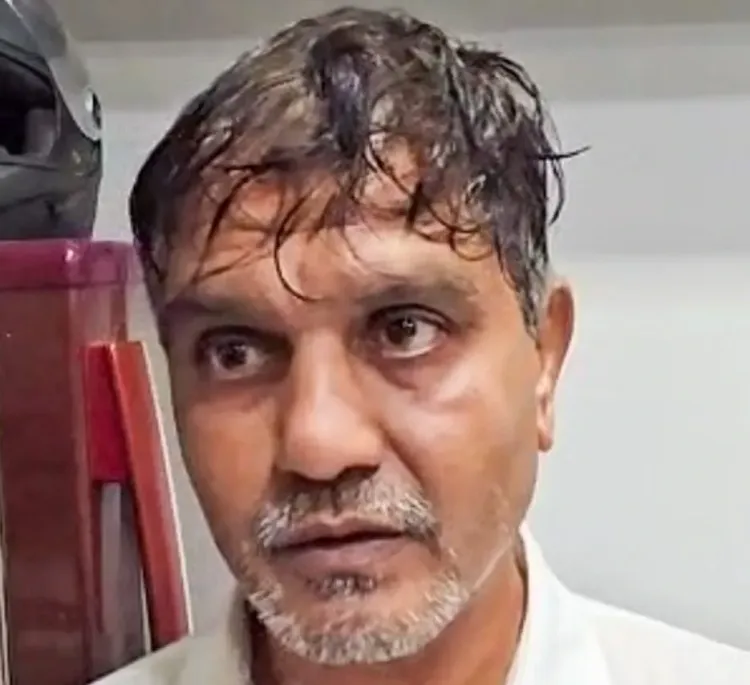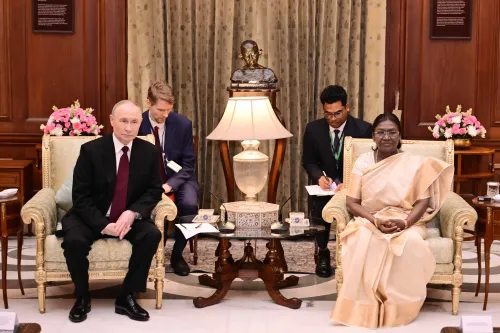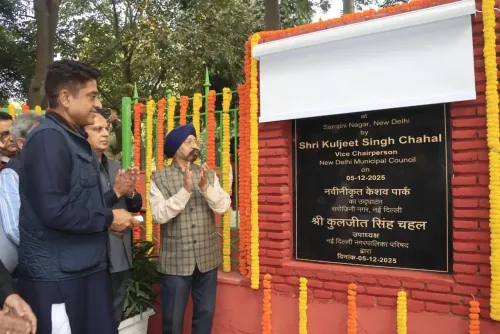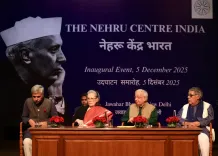Did Families of 2006 Mumbai Train Blast Accused Finally Find Justice?

Synopsis
Key Takeaways
- All 12 accused in the 2006 Mumbai train blasts have been acquitted.
- The Bombay High Court ruled that the prosecution failed to prove charges.
- Families expressed immense relief and gratitude towards the judiciary.
- The decision overturns previous convictions that included death sentences.
- The case raises serious questions about the investigative process and evidence credibility.
Mumbai, July 21 (NationPress) Families of individuals accused in the 2006 Mumbai train blast case celebrated the Bombay High Court’s significant ruling on Monday, referring to it as a long-awaited moment of justice and vindication. After nearly twenty years of arduous legal battles and emotional distress, these families felt that their prayers had finally been fulfilled.
The Bombay High Court has acquitted all 12 men who were previously convicted by a lower court in relation to the July 11, 2006, serial train explosions that devastated Mumbai, claiming 189 lives and injuring over 800 individuals. This ruling overturned the 2015 judgement by a special court that had sentenced five of the accused to death and the others to life imprisonment.
Several families of the acquitted individuals shared their overwhelming relief, emotional release, and profound gratitude towards the judiciary when contacted by IANS.
Zameer Shaikh’s brother, who spent years in prison for this case, expressed his joy, stating, "We are beyond words. We have been hoping for this day since 2015. We were heartbroken then, but never lost faith. Today, the court has upheld the truth. This was a complete fabrication - our brother was innocent."
Maqsood Ansari, sibling of Tanvir Ansari, shared a similar perspective. "We anticipated this justice for years. From the start, we knew this was a false case. There was no evidence linking the accused to the crime. The dissatisfaction with the 2015 verdict drove us to the High Court. Thank God and the judiciary - today, our family feels liberated again," he remarked to IANS.
“I want to specifically thank Wahid Sheikh, who remained steadfast and never lost hope. We always believed the truth would prevail,” he added.
Wahid Sheikh, who faced arrest in the 2006 case but was acquitted in 2015, recounted his harrowing journey. "In 2006, 13 of us were detained by ATS, and I was among them. What followed was nine years of abuse, forced confessions, and fabricated evidence. In 2015, I was honorably acquitted, but 12 others were convicted - five received death sentences, and seven were given life sentences. The case then continued in the High Court for another decade," he explained.
“Today, the court has absolved them all. This serves as the ultimate affirmation of our claims - that we were innocent. The ATS fabricated this case, tortured us, and attempted to ruin our lives. After 19 long years, the truth has triumphed. My brother-in-law, Sajid Ansari, who had been serving a life sentence in Nashik Jail, has also been acquitted,” he concluded.
The ruling was issued by a division bench comprising Justice Anil Kilor and Justice S.G. Chandak, who determined that the prosecution failed to establish the charges beyond a reasonable doubt. This judgement not only nullifies the previous sentences issued by the special court but also significantly undermines the credibility of the investigating agencies involved in this case.
Among the 13 men initially arrested, one - Wahid Sheikh - was acquitted by the special court back in 2015. With Monday's decision, all remaining 12 have now been cleared of all charges and are expected to be released from custody promptly.
The 2006 blasts, one of the most devastating terror assaults in Mumbai's history, involved seven synchronized explosions on local trains along the Western Line, between Churchgate and Borivali, during the evening rush hour. The explosives - a lethal combination of RDX and ammonium nitrate - were concealed in pressure cookers and bags.
While forensic teams confirmed the use of these materials during their probe, doubts arose over the reliability of the evidence and the investigation methods employed.










